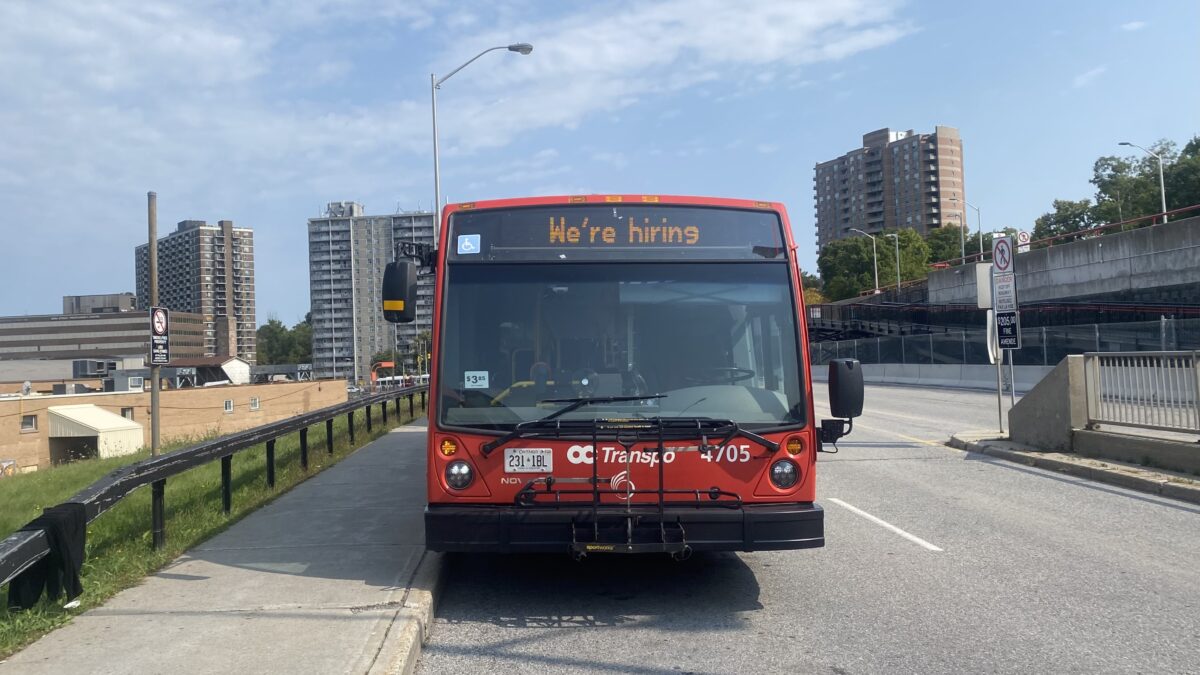OC Transpo employees are “stretched to the limits of safety and legality,” ATU Local 279 President Noah Vineberg told a Sept. 12 Transit Commission meeting.
This is happening, he added, as the system is having difficulty retaining staff despite increased recruitment efforts.
As a result, Vineberg said schedules are “unreasonable,” with operators stretched thin because of the changes. Operators are working up to 12 hours, but only compensated for eight.
Kitchissippi Coun. Jeff Leiper asked if there was a perception of the working conditions facing OC Transpo employees that is dissuading people from applying for jobs. Vineberg replied that operators having to work evenings and weekends makes it difficult for OC Transpo to compete for new staff.
In 2023, because of budget cuts and staffing shortages OC Transpo announced service reductions of 74,000 hours a year.
Vineberg, whose union represents many front-line workers including bus and LRT operators, told the meeting the system is not sustainable and that more funding is needed from the provincial and federal governments.
“We are now told to be patient and wait once again – we are asked to adapt without fundamental support. How can we expect the public to trust and rely upon transit when we can’t guarantee safety and cleanliness.”
Even so Vineberg said he would not support raising rider fares.
“The responsibility cannot continue to fall on the shoulders of those who need transit the most.”
Barrhaven East Coun. Wilson Lo, who was a bus driver from 2014 to 2020, said that operator schedules were contentious when he worked for OC Transpo, and that schedules are even tighter now. Lo said the anticipated launch of the LRT resulted in, “a lot of arguably premature layoff notices,” that caused many co-workers to leave for other transit agencies.
He said OC Transpo implemented hiring freezes after the layoff notices. “We’ve never recovered. Operator shortages were already a thing when I was there. This is 2017, 2018 and they’re much worse now,” he said.
Despite the need for more employees and increased services, OC Transpo is in a dire fiscal position. With many people still working in remote and hybrid environments, OC Transpo’s ridership has not recovered to pre-pandemic levels. In January 2024 it reported a nearly $1 million deficit in ridership revenue compared to budget projections.
Ottawa Mayor Mark Sutcliffe’s “Fairness for Ottawa” campaign is attempting to find a solution by asking the provincial and federal governments to help Ottawa fund public transit, among other financial concerns.
Without an external funding boost and more operators, commuters could face more route cuts and increased fares, a solution Noah Vineberg says will further discourage use of the service.
“The provincial and federal government has a role to play in ensuring the resources are here, and I hope that council and commission are listening very closely to the plea for adequate resourcing that you’re making today,” said Leiper.




